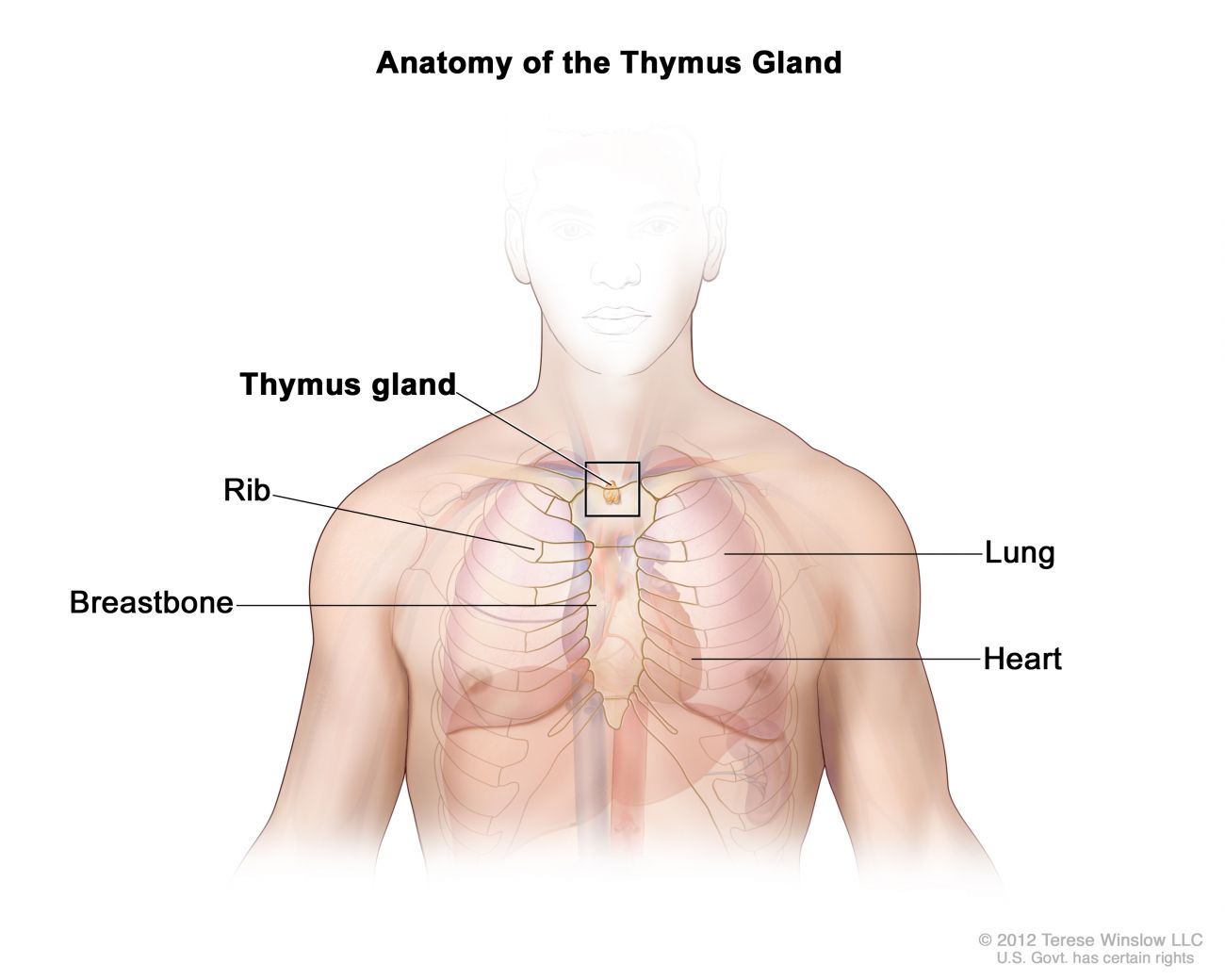Your thymus is a small organ located between your lungs, above your heart. It is an important part of your immune system, and does double duty as both an endocrine gland and a lymphatic gland. Before birth and until puberty the thymus is vital to the production of T cell lymphocytes, special white blood cells that help protect the body against viruses and infections.
If the thymus does not work properly, it can result in immunodeficiency, where you become more susceptible to infections, or autoimmunity, where your immune system attacks your own body instead of protecting it. The T cells produced by your thymus can attack cancer cells, and can also be attacked by cancer cells.
What causes thymus cancer?
Cancer of the thymus is rare. Malignancies can develop from one of the three kinds of cells that make up the thymus — epithelial, lymphocyte and neuroendocrine. Researchers have not identified specific inherited or environmental risk factors, but some types of thymus cancer are found more often in people aged 40 to 75, and are more common in African Americans, Asians and Pacific Islanders than in Whites and Latinos.
Types of thymus cancer
Most cases of thymus cancer fall into one of two main categories, thymoma and thymic carcinoma. Sometime thymus cancers are considered a neuroendocrine tumor or a carcinoid as they arise from the unique neuroendocrine cell.
These thymic tumors form from the epithelial cells that cover the outside of the thymus and can be benign (non-cancer) or malignant (cancer). About 500 Americans are diagnosed each year with thymomas, which are often discovered when being treated for an unrelated illness.
Thymomas generally grow slowly and are classified according to whether or not they spread beyond the thymus into other areas and organs in your body, such as the chest or lungs. Myasthenia gravis, a neuromuscular autoimmune disorder that can result in severe muscle weakness, is found in about a third of people with thymomas.
Thymic carcinomas are tumors that also begin in the epithelial cells that cover the thymus but grow more quickly and can spread and metastasize (form new tumors) beyond the thymus.
These rare and slow-growing cancerous tumors arise from neuroendocrine cells. Neuroendocrine tumors (NETs) usually occur in the digestive tract and lungs, but can also develop in the thymus gland. Thymic carcinoid tumors occur more often in men than in women and are more likely to recur than thymomas. Learn more about our neuroendocrine expertise.
Symptoms of thymus cancer
Many people have no symptoms, and if symptoms do occur, they vary from person to person. Cough and chest pain are the most common symptoms. Other signs may include:
- Persistent cough
- Constant chest pain or pressure
- Shortness of breath
- Muscle weakness
- Trouble swallowing
- Hoarseness
Experiencing one or more of these symptoms does not necessary mean you have a a thymus tumor, but it is important to discuss them with your doctor because they could signal other health problems.
